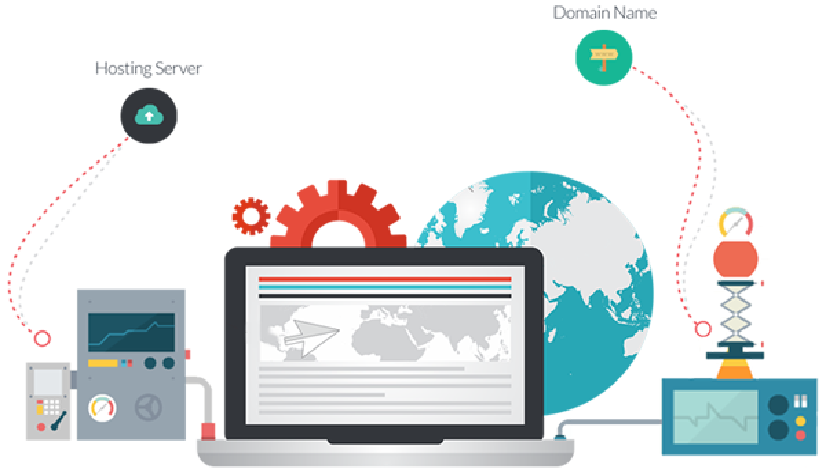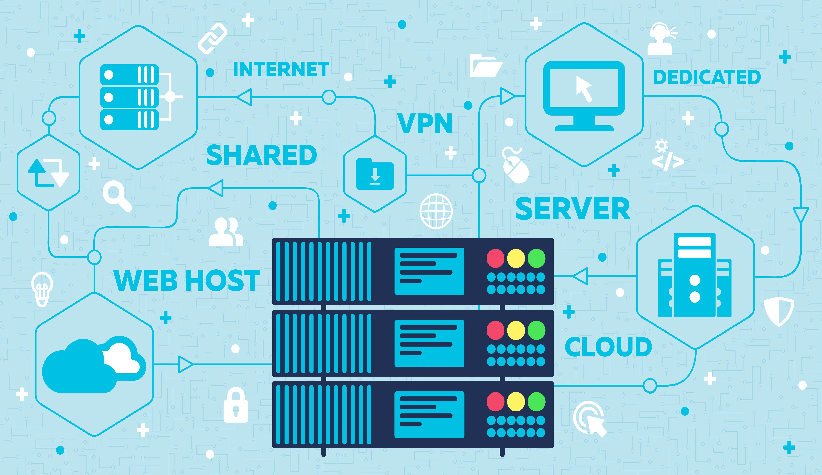Top 5 Common Hosting Issues and How to Avoid Them
When it comes to hosting your website, the last thing you want is to face unexpected issues that could disrupt your site’s performance, security, or user experience. Common hosting problems like downtime, slow loading speeds, security vulnerabilities, and poor customer support can have a significant impact on your website’s success. In this blog, we’ll highlight the top 5 hosting issues and provide tips on how to avoid them by choosing the right hosting provider and plan.
1. Website Downtime
The Issue: Downtime is one of the most frustrating issues website owners face. Whether it’s due to server failures, maintenance, or traffic surges, downtime can lead to lost visitors, missed sales, and a damaged reputation. It also negatively impacts SEO rankings, as search engines like Google penalize sites that have consistent outages.
How to Avoid It:
- Choose a Reliable Hosting Provider: Look for a hosting provider that guarantees high uptime (preferably 99.9% or higher). Many reputable providers offer uptime guarantees and backup solutions to minimize downtime.
- Opt for Scalable Hosting: Ensure your hosting plan can scale with your website’s growth. If your traffic increases unexpectedly, a scalable hosting plan (like VPS or cloud hosting) can help ensure your website stays up without performance issues.
- Use Content Delivery Networks (CDNs): CDNs distribute your website’s content across multiple servers worldwide, reducing the chances of downtime by providing a backup server if your main server experiences issues.
2. Slow Website Speeds
The Issue: Website speed is a critical factor for user experience and SEO. Slow load times can frustrate visitors, increase bounce rates, and hurt your rankings in search engine results pages (SERPs). Hosting performance is often the primary reason for slow website speeds.
How to Avoid It:
- Choose the Right Hosting Type: Opt for hosting that matches your site’s needs. Shared hosting is cost-effective but may slow down with increased traffic. Consider upgrading to VPS or dedicated hosting if your website needs better performance.
- Use Caching Solutions: Implement caching mechanisms like browser caching, server-side caching, or content caching to reduce load times by storing copies of your web pages and delivering them faster to returning visitors.
- Optimize Your Website: Compress images, minimize code (HTML, CSS, JavaScript), and reduce the number of HTTP requests. These optimizations can improve loading speed, regardless of your hosting plan.
3. Security Vulnerabilities
The Issue: Security vulnerabilities are a major concern for website owners, especially for e-commerce sites and those storing sensitive data. Poor hosting security practices can lead to hacks, data breaches, malware infections, and even blacklisting from search engines.
How to Avoid It:
- Choose a Secure Hosting Provider: Look for hosting providers that offer built-in security features like firewalls, DDoS protection, and SSL certificates. Managed hosting services often include enhanced security features, reducing the risk of vulnerabilities.
- Regularly Update Software: Ensure your website’s CMS, plugins, themes, and server software are always up to date with the latest security patches. Outdated software is a common entry point for cyberattacks.
- Back Up Your Website: Regular backups are essential to recover your site in case of an attack. Ensure your hosting provider offers automated backups or set up your own backup routine.
4. Poor Customer Support
The Issue: When technical issues arise, the quality of customer support can make or break your experience. Poor or unresponsive customer support can leave you stranded during critical times, impacting your website’s uptime and overall performance.
How to Avoid It:
- Check Support Availability: Choose a hosting provider with 24/7 customer support. Ideally, they should offer multiple support channels (live chat, phone, email, and ticket systems) to cater to different needs.
- Look for Reviews: Read customer reviews and testimonials to gauge the quality of support offered by the hosting provider. A host with a reputation for providing timely and knowledgeable support is a valuable asset.
- Test Support Before Committing: Reach out to the hosting provider's support team with questions before signing up for a plan. This will give you an idea of their response time and the quality of assistance they offer.
5. Limited Scalability
The Issue: As your website grows, you may find that your hosting plan no longer meets your needs. Websites with limited scalability can experience slowdowns or outages as they outgrow their server’s resources. If your hosting provider doesn't offer scalable plans, it could force you to migrate to a new provider, which can be time-consuming and disruptive.
How to Avoid It:
- Choose a Scalable Hosting Plan: Select a hosting provider that offers flexible and scalable hosting options. Cloud hosting and VPS hosting are great options as they allow you to easily upgrade your resources (CPU, RAM, disk space) as needed.
- Monitor Your Traffic: Regularly track your website’s performance and traffic trends. If you notice spikes or consistent growth, it’s time to start considering a hosting upgrade before you run into performance issues.
- Upgrade as Needed: Don’t wait until your site’s performance deteriorates. Proactively upgrade to a higher-tier plan (e.g., from shared hosting to VPS or dedicated hosting) when you anticipate growth.
Conclusion
Hosting issues like downtime, slow speeds, security vulnerabilities, poor customer support, and limited scalability can cause significant problems for your website and business. The good news is that many of these issues can be avoided by choosing the right hosting provider and plan.
- Ensure Reliability: Choose a hosting provider with high uptime guarantees and responsive customer support.
- Optimize Speed and Security: Select hosting that offers security features, and implement website optimization techniques.
- Plan for Growth: Choose scalable hosting solutions like VPS or cloud hosting that can grow with your website.
By carefully considering your hosting options and being proactive about your website’s needs, you can avoid these common hosting issues and keep your site running smoothly.












